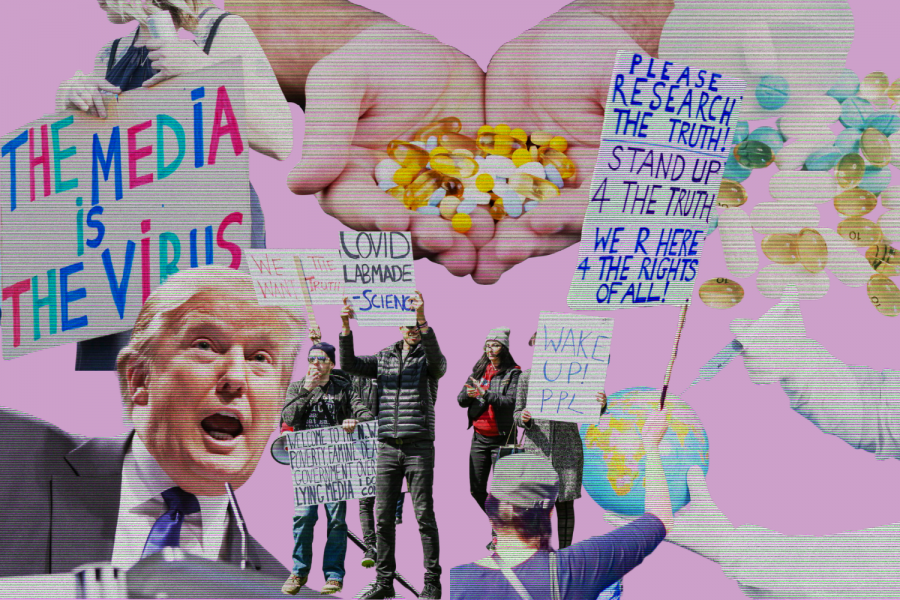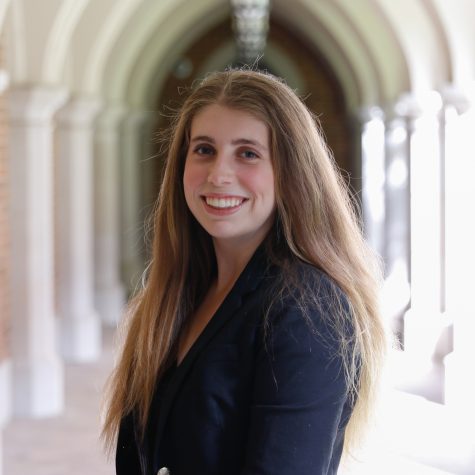In mid-April, I pulled into the parking lot of a small Walmart in Hendersonville, Tennessee. I’d signed up for a two-hour round trip to a town I’d never been to because they had a single vaccine appointment.
My story is not unique. For weeks after the announcement that those living in dormitories were eligible, Vanderbilt students took charge to get vaccinated. We flocked to the medical center, Walmart or stadium events downtown. Students found appointments for others and offered up their cars or bikes. Many of us exchanged gas money and coffee for rides to faraway pharmacies. The promise of a return to normalcy, an unmasked semester and a non-illegal hug from a friend kept us going.
For a brief moment, some Americans were desperate enough to get the vaccine that they were waiting for hours for leftover vaccines and exaggerating medical conditions. Now, we are being offered anything from a free shirt to a chance at winning $1 million dollars just to be vaccinated. Even with the new delta variant on the rise, many unvaccinated Americans remain steadfast in their decision not to get the jab.
The recent surge of fatal virus cases and hospitalizations among unvaccinated people has brought the grim realities of virus transmission crashing home for many who thought they had skirted the pandemic. Our national vaccine hesitancy is astonishing to non-Americans. Aren’t we grateful to have an abundance of vaccines? Don’t we realize how good we have it? No … Americans don’t realize how good they have it. In fact, it’s often the ones who consider themselves the proudest to be American who are most resistant to getting the vaccine.
I can’t make sense of it either.
A victim of its own success
The anti-vaccination movement is not a new phenomenon in the United States. Vaccination is one of the top public health achievements of our time, yet opposition has existed nearly as long as vaccination itself. As diseases were eradicated, the fear of the disease waned from collective memory. New generations of parents were vaccinated as children and had no experience with deadly pandemics.
Our generation is no exception. Have you ever known anyone with Polio? Diphtheria? Mumps? The mild side effects and chemical components of the vaccine are now perceived as a greater disturbance than the diseases themselves.
In the United States, misinformation about the virus was fuelled by the Trump administration’s inconsistent messaging. This misinformation intersected with a public that was already skeptical about vaccines, imperiling the effort to vaccinate enough Americans. Rare side effects have been exaggerated and turned into conspiracy theories.
Gallup Polls’ June estimate states that about 20 percent of Americans have not been vaccinated and are unlikely to get vaccinated in the future. Among those not planning to be vaccinated, 78 percent say they are unlikely to reconsider their plans, including 51 percent who say they are “not likely at all” to change their mind and get vaccinated. That leaves one in five vaccine-reluctant adults open to reconsidering.
We have become so stuck in our own ways that we are unwilling to read new studies, change our perspectives, or have empathy for others.
Given former President Trump’s initial refusal to get his own COVID-19 vaccine in public and his lackluster attempts to convince his base to get vaccinated, it is no surprise that anti-vaccination is high among Republicans. States that voted for Trump in the 2020 U.S. Election are disproportionately lagging behind those who voted for Biden when it comes to adult vaccination. At a recent “Save America” rally in Alabama, Trump was booed and jeered for suggesting his supporters get vaccinated.
My Body, My Choice
Every one of us has the right to decline life-saving treatment and act against medical advice. Many Americans cite their individual right to privacy in the crusade against vaccines. The argument of “my body my choice,” which originated with the pro-choice movement, has been used by anti-vax advocates to argue for bodily autonomy. Modern skeptics have a much higher interest in liberty and personal freedom and are less likely to defer to those in power. Anti-vaxxers in the U.S display a lack of trust in the government and in the healthcare system. Many worry that the vaccines were not thoroughly tested and were approved too quickly. The change in administration has politicized the vaccine debate.
The laws that govern us are an explicit social contract; anyone who chooses to live in America agrees to be governed by its ethical and moral framework. We are not allowed to steal things we want from stores so we can operate as a successful society with enough for everyone. Individuals are required to yield some freedoms in order to fully become free as a society. Proponents of the anti-vaccination movement argue that being vaccinated infringes on their personal liberty.
Returning to the old reality is a slow and frustrating process that requires sacrificing some liberty and comfort. Every single one of us must abandon some of our individual freedoms and comforts to benefit from the protection, health and safety offered by our society.
Selfishly, I want a normal year in college. I don’t want things to be “almost normal,” with mask requirements and social distancing classrooms. I don’t want to hear “this is sort of how it was before” or be told another anecdote about pre-pandemic Rand. I don’t want to worry.
If the choice I make for my body harms others, then that is no longer a choice that I should be allowed to make.
Doctors or murderers?
Did you know that vaccines are weapons of mass destruction? Did you know that they change the composition of our DNA and let the government track us? Did you know that the COVID-19 vaccines could wipe out the entire human race? Did you know doctors, nurses and other frontline healthcare workers are actually war criminals, guilty of murder?
Conspiratorial thinking is a key predictor of anti-vaccination sentiment. After all, these theories can provide narratives that bring order and reduce worries during periods of rapid change. It’s comforting to have something to believe in. Conspiracy groups chasing a lost cause after Trump lost simply adopted new anti-vaccination agendas. The same language, rhetoric and technique was used to spread an anti-vaccine message. This language is familiar and well-known, appealing to large numbers of people and making its message powerful.
Conspiracy movements have gained traction online where “victim groups” congregate to share stories. Familiarity with the language enables more people to be influenced by the message. An increase in inequality and discrimnation has also convinced many Americans that their government is no longer working for their betterment. We’ve seen the dangers of people being influenced on how to vote—what happens when that influence extends to their health?
There is a special level of privilege here in the U.S. that comes with refusing the COVID-19 vaccine, one that I think many of us don’t even recognize. Ultimately, we trust that if we get very sick, there will be someone well-qualified to care for us. Even despite our legitimate complaints about the astronomical costs of healthcare in the U.S., the care will still be there. There will be a hospital bed, a team of doctors, enough technology and medicine. Even if we develop a long-term COVID-related issue, the care is still there.
Our government needs to send a clear message: whether ignorance is willful or not, everyone must be vaccinated. There is no choice when it comes to public health. For the people who say, “I want to learn more” or “I want to watch and wait,” or “It won’t affect me,” I would like to remind you that you are doing harm to others. Your selfishness affects your friends and family, the immunocompromised, your own children, and the communities you belong to. By not doing your small part to reduce the spread, you increase the risks for all of us.
Your selfishness upends the sacrifices we have all made together to end this pandemic.







Lula • Sep 21, 2021 at 1:34 pm CDT
Deciding to get an abortion harms many lives..the unborn (with nerve ending and pain receptors) the mother (emotionally and physically) if that’s not selish i don’t know what is!
There are certainly medical exceptions
But those selfish (i don’t want the responsibility or to ruin my body) well those ppl should have been responsible before huh?..consequences will out no matter the subject..but should you allow others to decide for you?
That’s gotta always be your choice.. not the masses…the masses are often wrong and flawed… that’s human nature…so i still say….my choice
silverfern • Sep 13, 2021 at 10:49 am CDT
Absolute rubbish. Show me that any coronavirus has been isolated and shown to cause disease. You can’t because there are no such papers. For people suffering from symptoms associated with COVID-19 Ivermectin and HCQ/Zn have been shown to be highly effective and safe by hundreds of frontline doctors. Please stop with this utter nonsense.